This AP United States History Cheat Sheet offers concise overviews of key events, dates, and figures across all units. It helps students review efficiently, preparing them for multiple-choice and free-response exam sections.
Free AP United States History Practice Test
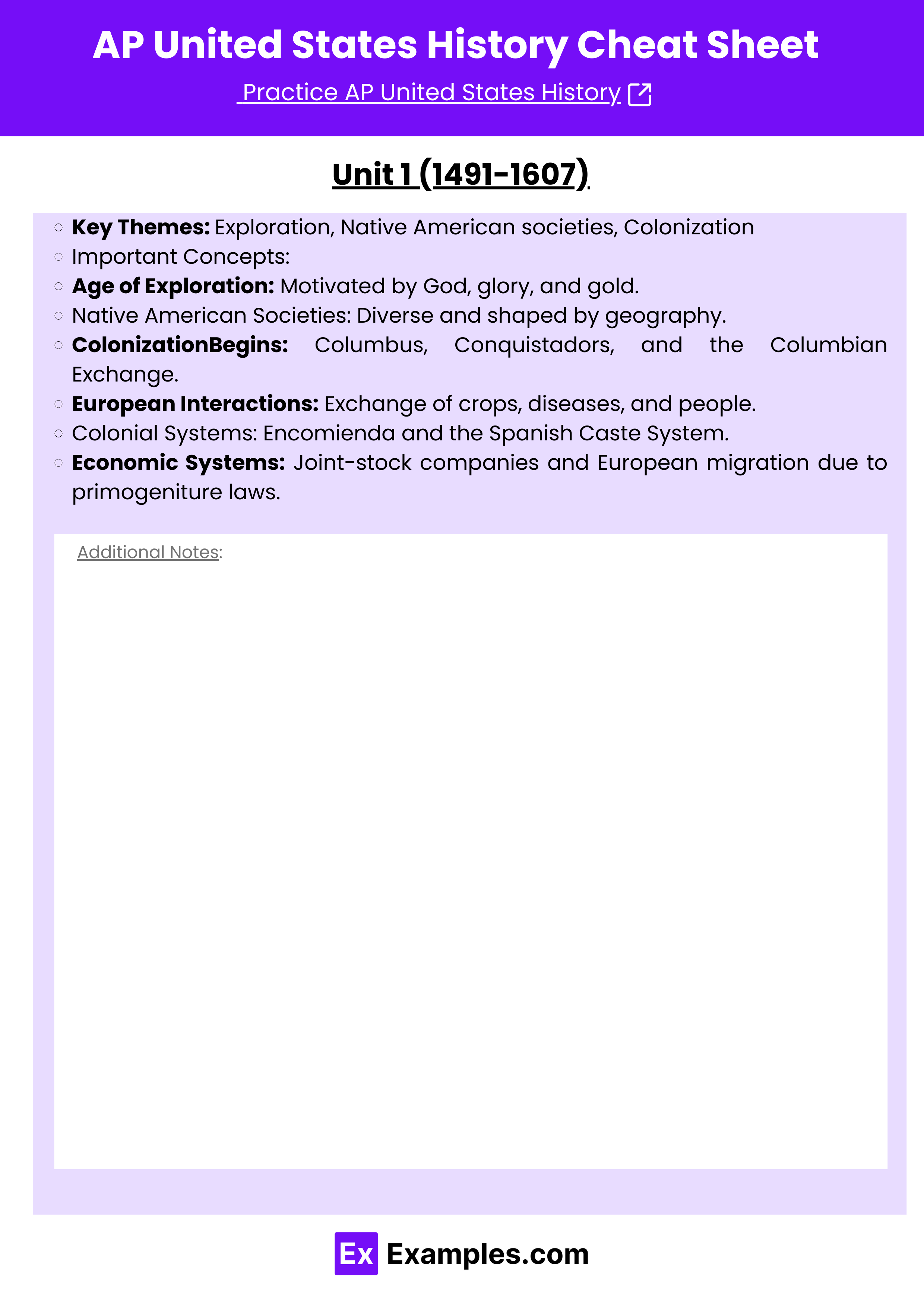
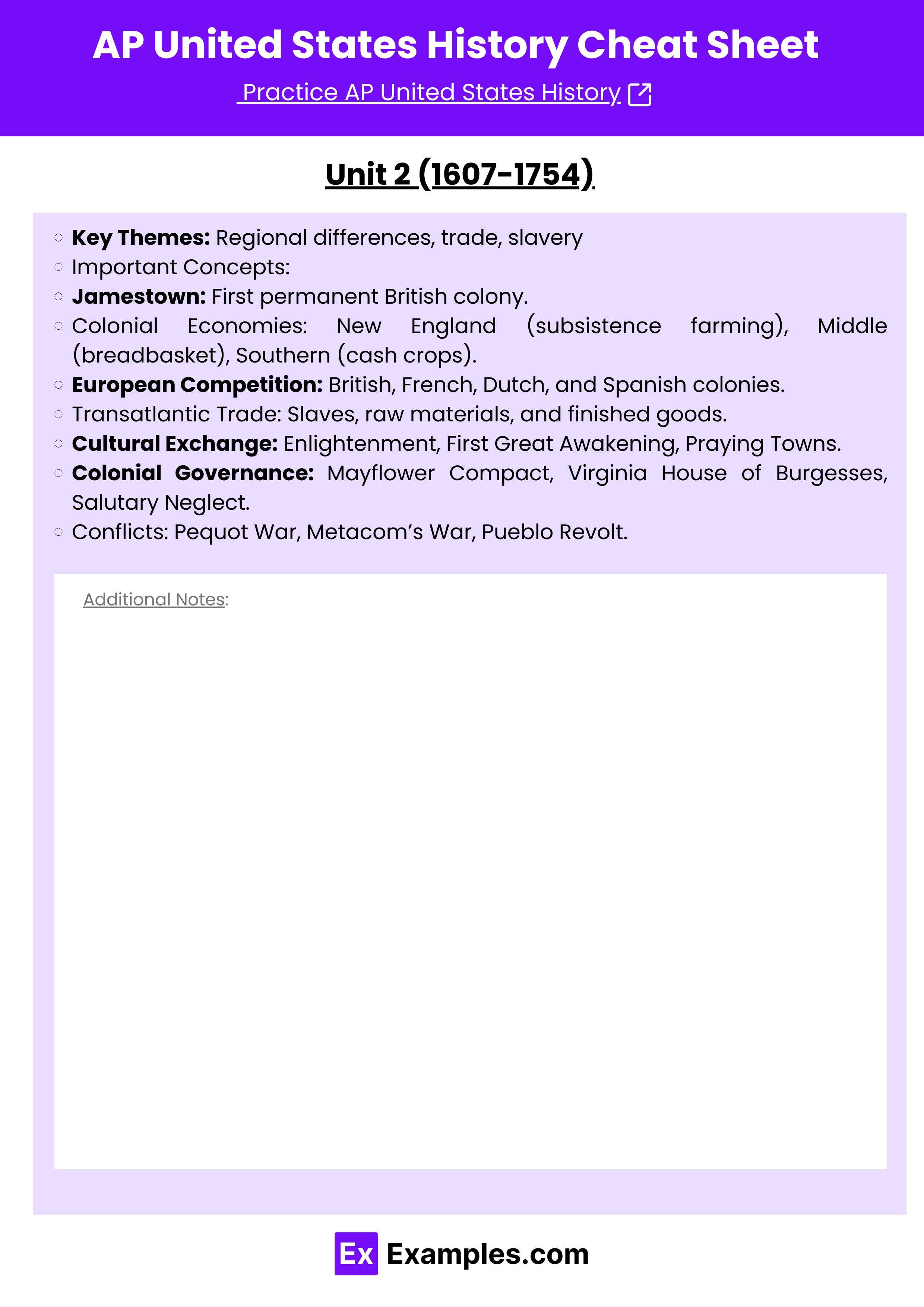
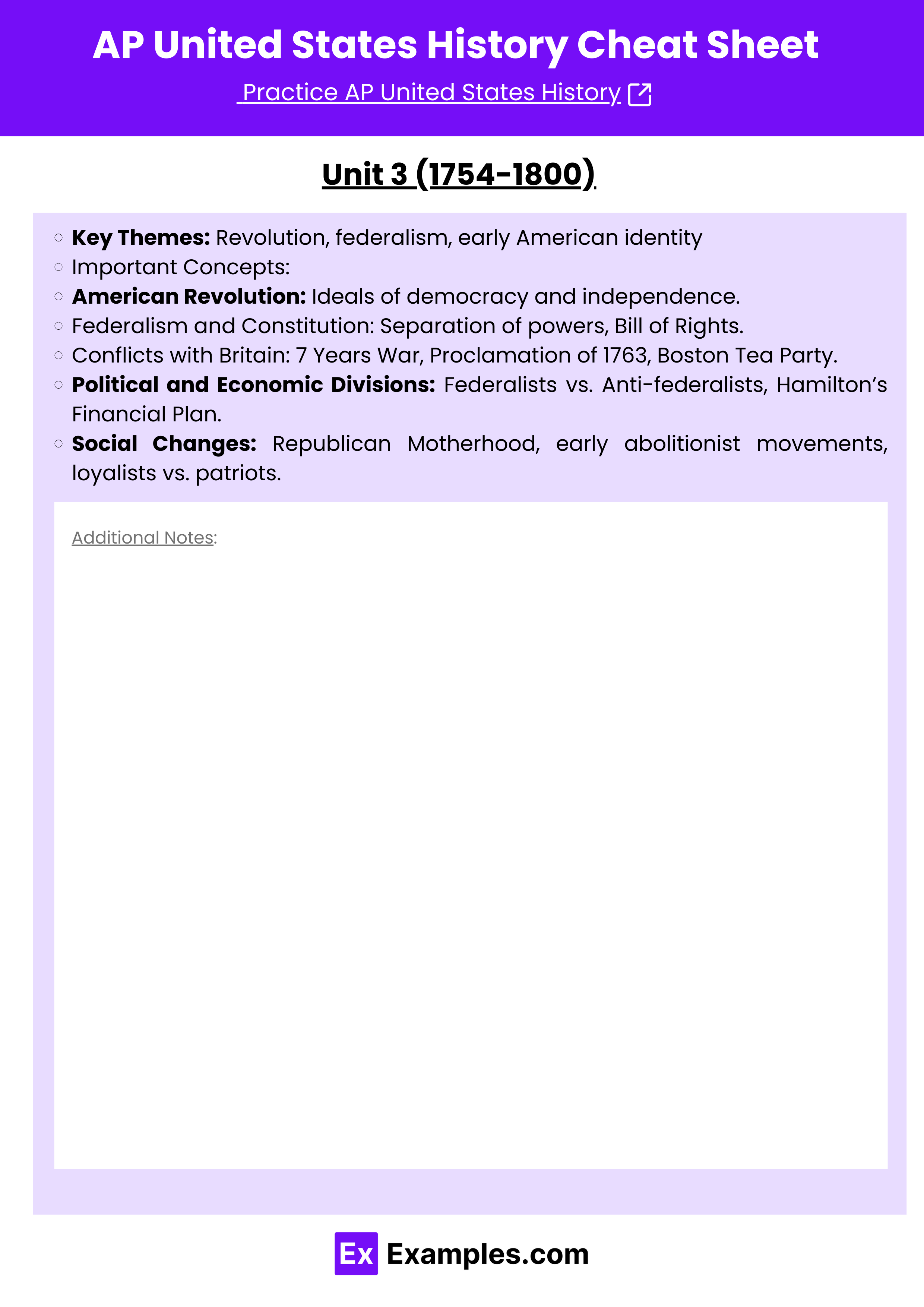
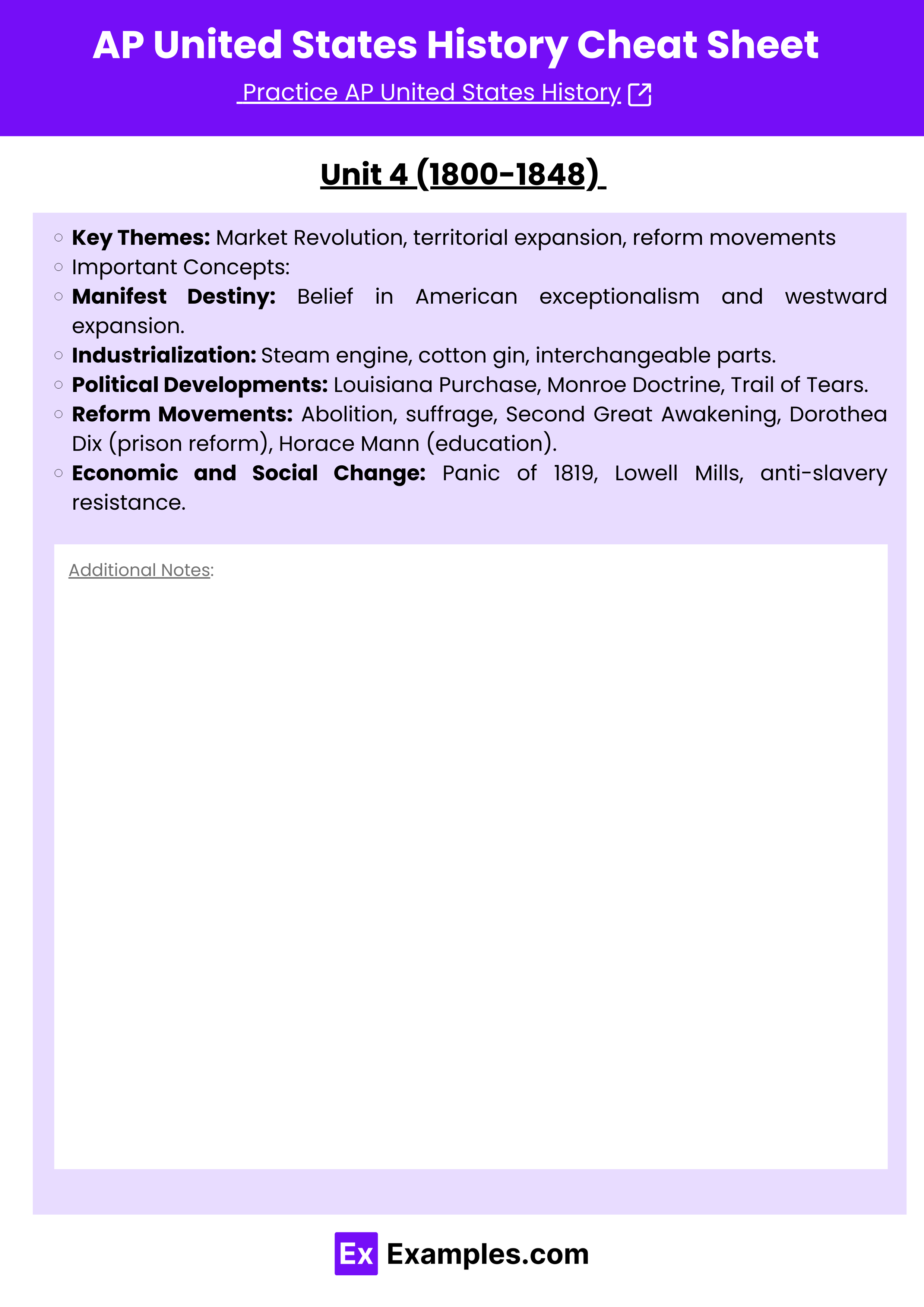
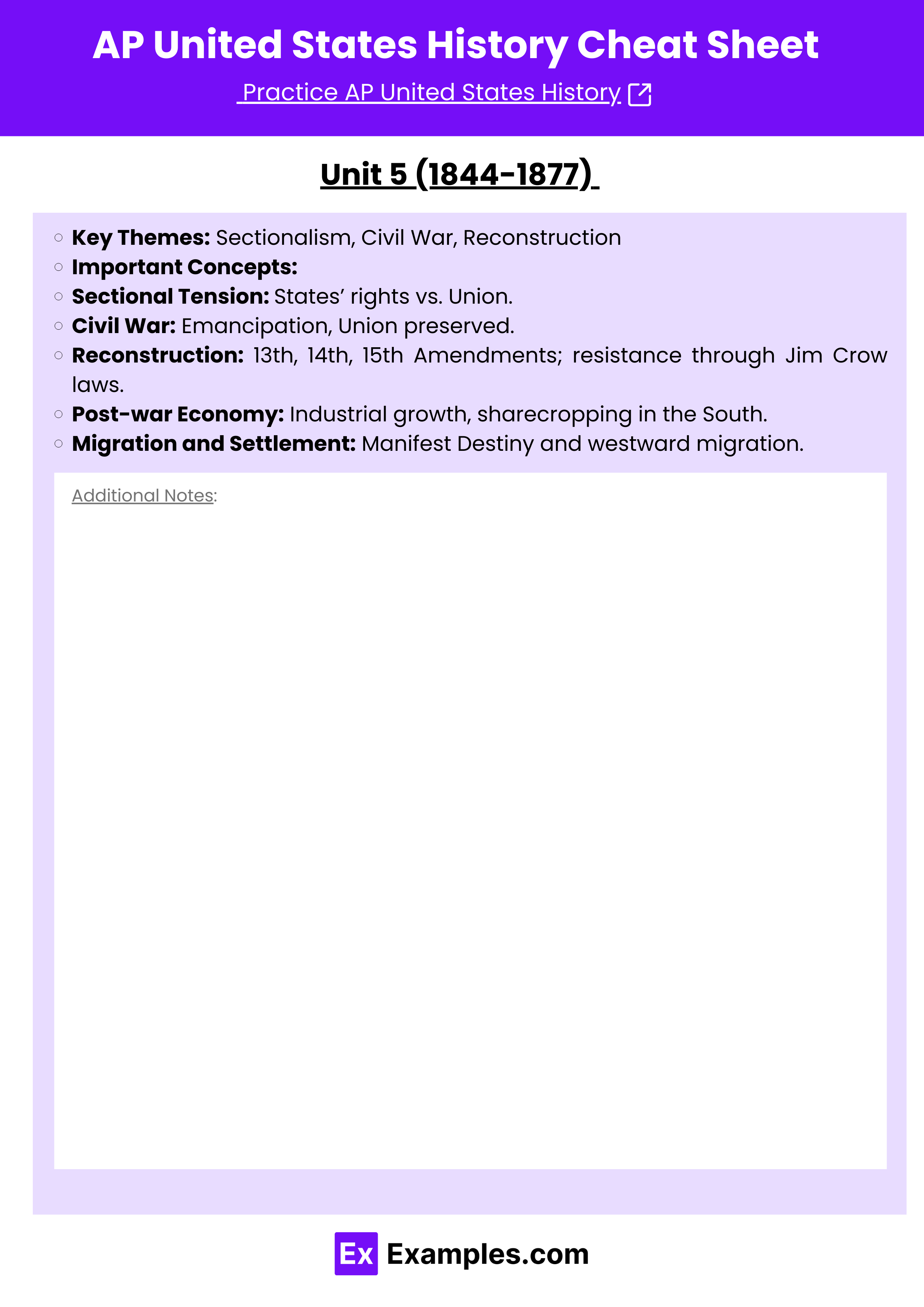
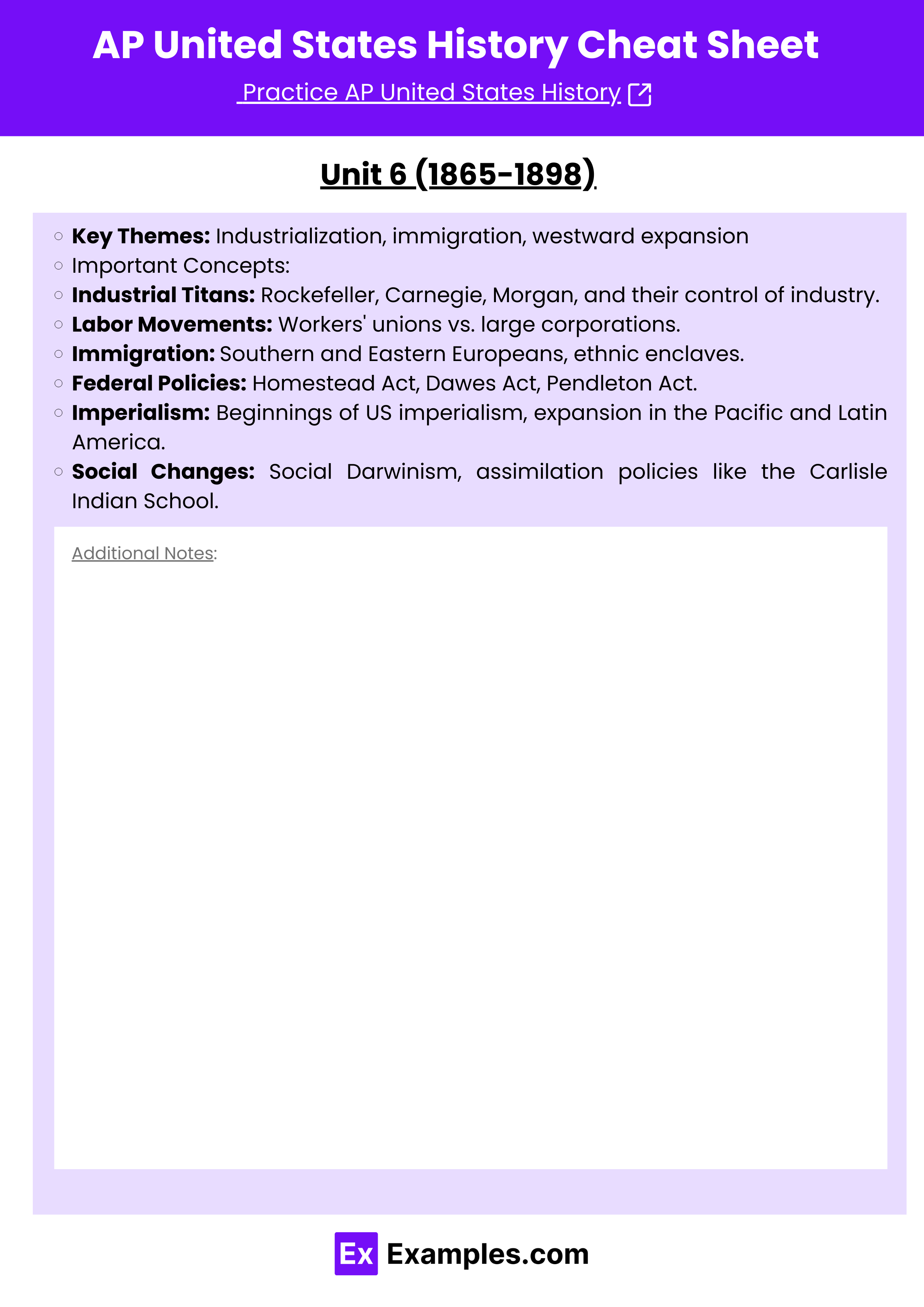
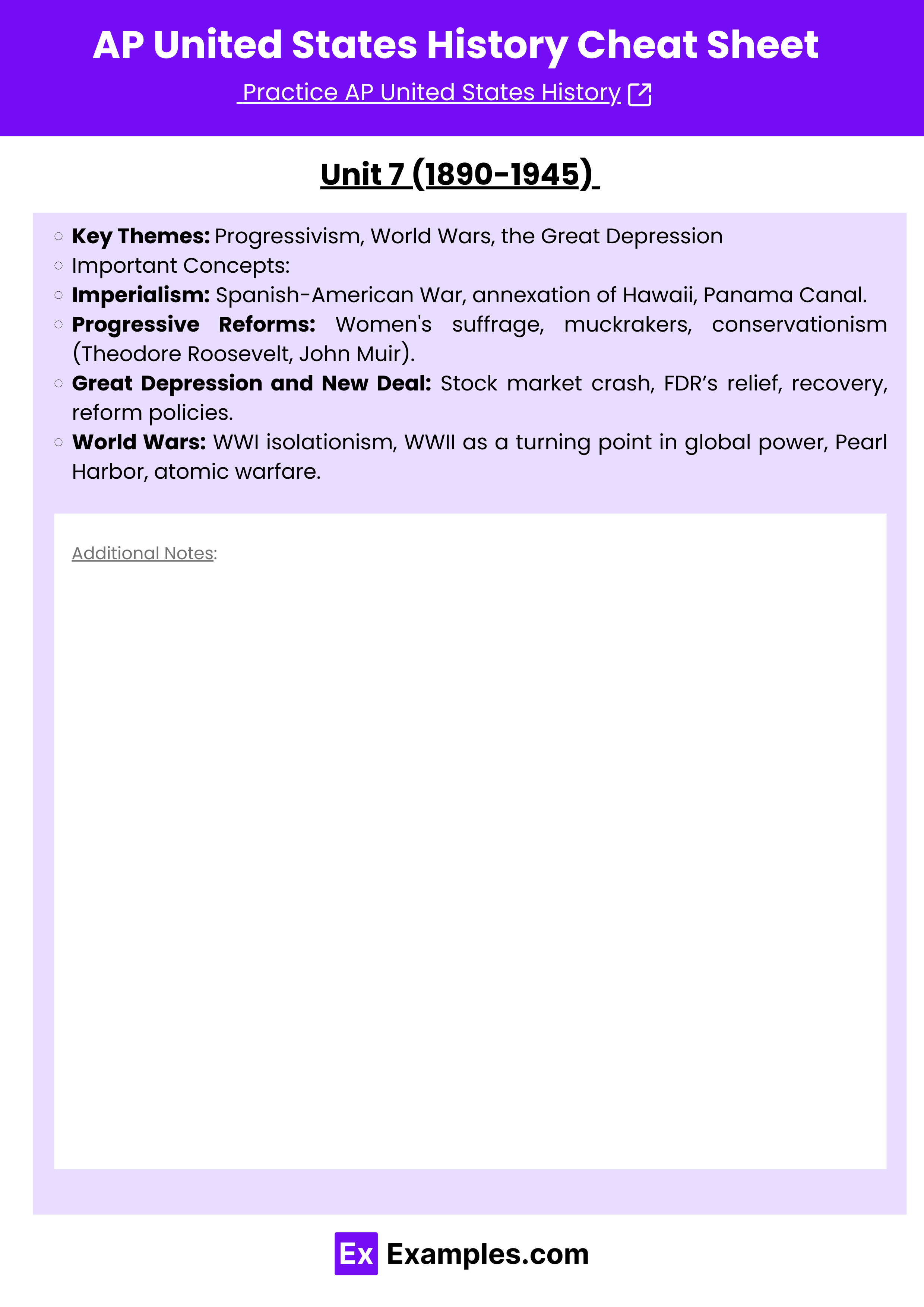
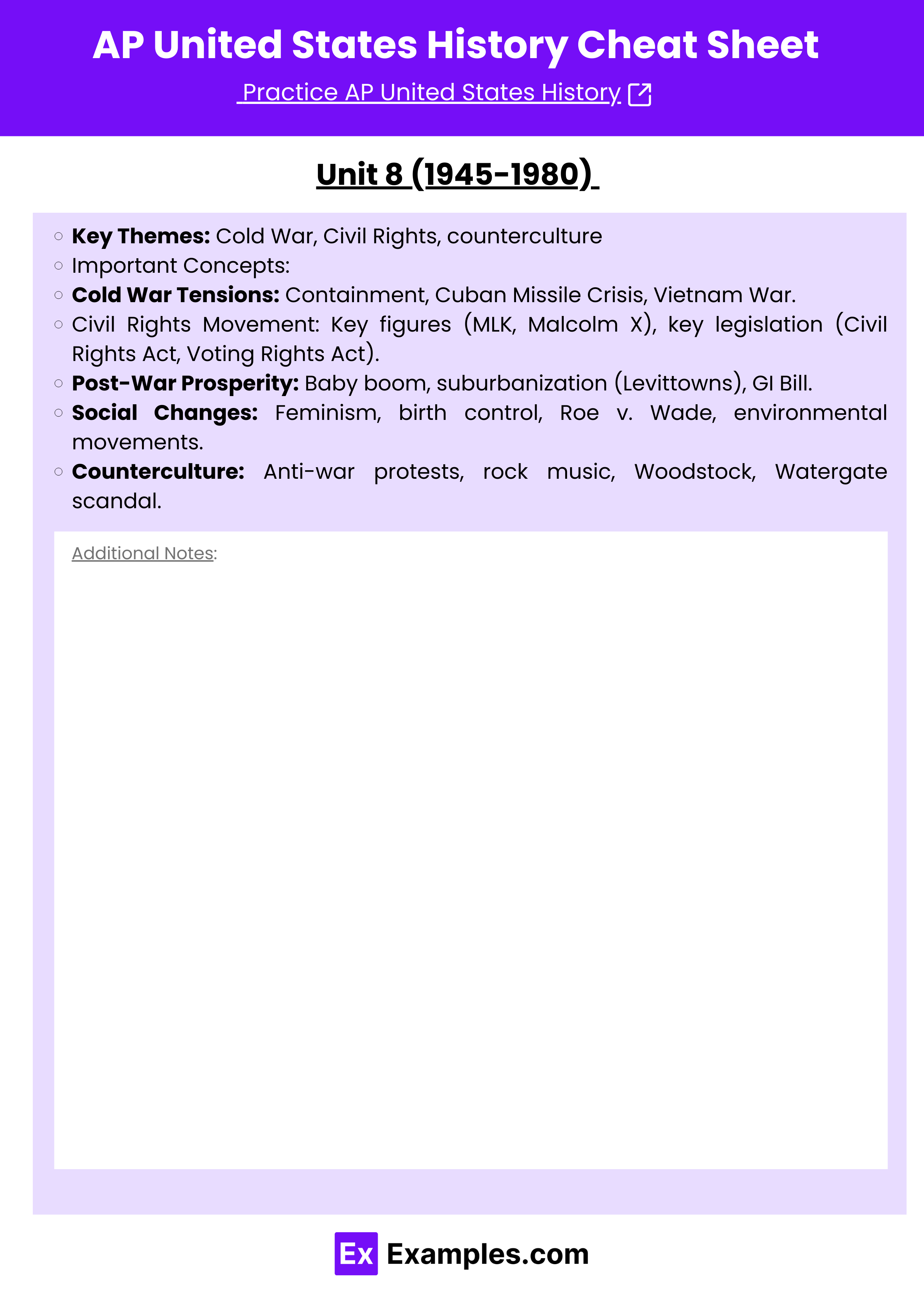
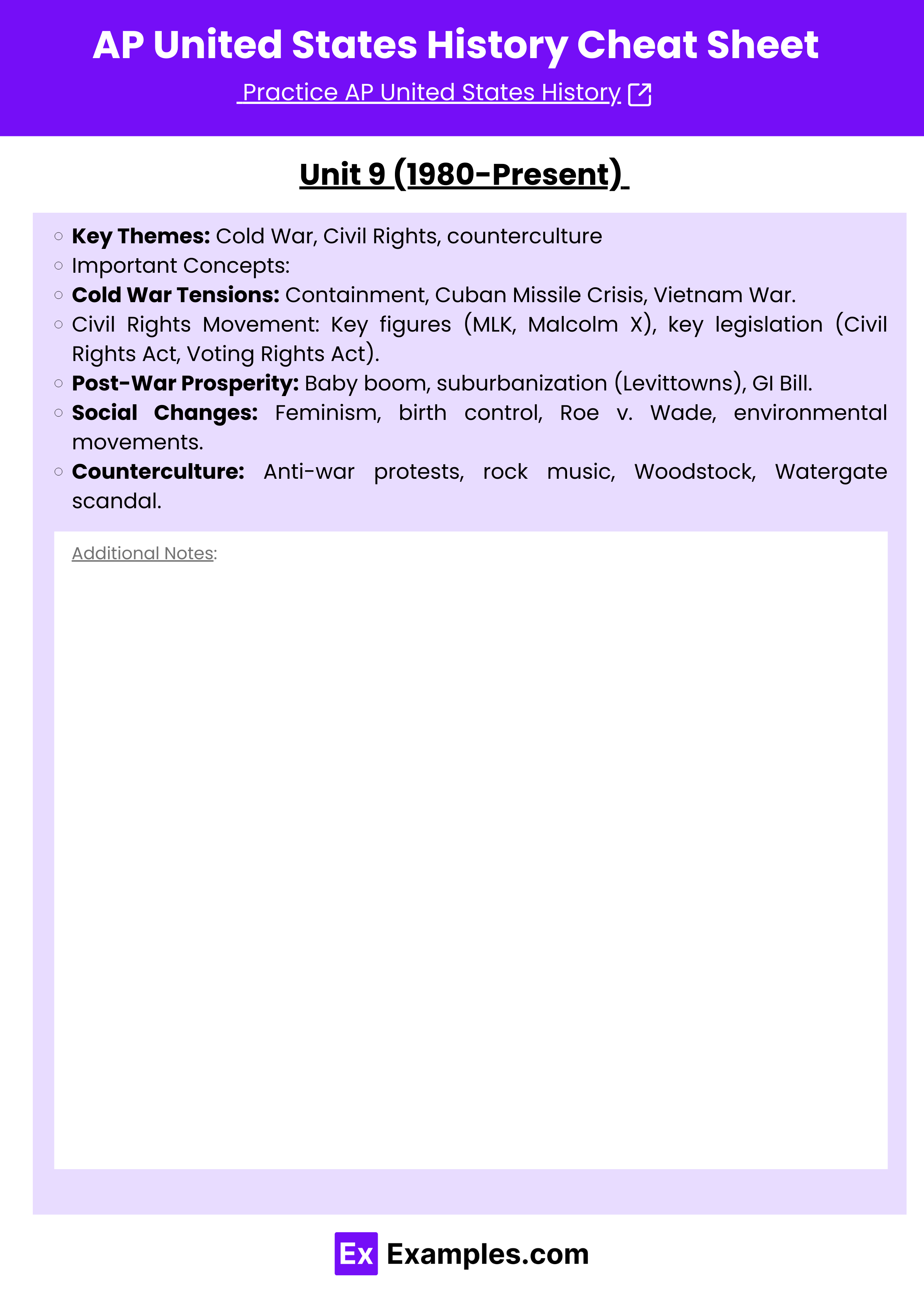
Download AP United States History Cheatsheet – Pdf
Unit 1 (1491-1607):
Key Themes: Exploration, Native American societies, Colonization
Important Concepts:
Age of Exploration: Motivated by God, glory, and gold.
Native American Societies: Diverse and shaped by geography.
Colonization Begins: Columbus, Conquistadors, and the Columbian Exchange.
European Interactions: Exchange of crops, diseases, and people.
Colonial Systems: Encomienda and the Spanish Caste System.
Economic Systems: Joint-stock companies and European migration due to primogeniture laws.
Unit 2 (1607-1754):
Key Themes: Regional differences, trade, slavery
Important Concepts:
Jamestown: First permanent British colony.
Colonial Economies: New England (subsistence farming), Middle (breadbasket), Southern (cash crops).
European Competition: British, French, Dutch, and Spanish colonies.
Transatlantic Trade: Slaves, raw materials, and finished goods.
Cultural Exchange: Enlightenment, First Great Awakening, Praying Towns.
Colonial Governance: Mayflower Compact, Virginia House of Burgesses, Salutary Neglect.
Conflicts: Pequot War, Metacom’s War, Pueblo Revolt.
Unit 3 (1754-1800):
Key Themes: Revolution, federalism, early American identity
Important Concepts:
American Revolution: Ideals of democracy and independence.
Federalism and Constitution: Separation of powers, Bill of Rights.
Conflicts with Britain: 7 Years War, Proclamation of 1763, Boston Tea Party.
Political and Economic Divisions: Federalists vs. Anti-federalists, Hamilton’s Financial Plan.
Social Changes: Republican Motherhood, early abolitionist movements, loyalists vs. patriots.
Unit 4 (1800-1848):
Key Themes: Market Revolution, territorial expansion, reform movements
Important Concepts:
Manifest Destiny: Belief in American exceptionalism and westward expansion.
Industrialization: Steam engine, cotton gin, interchangeable parts.
Political Developments: Louisiana Purchase, Monroe Doctrine, Trail of Tears.
Reform Movements: Abolition, suffrage, Second Great Awakening, Dorothea Dix (prison reform), Horace Mann (education).
Economic and Social Change: Panic of 1819, Lowell Mills, anti-slavery resistance.
Unit 5 (1844-1877):
Key Themes: Sectionalism, Civil War, Reconstruction
Important Concepts:
Sectional Tension: States’ rights vs. Union.
Civil War: Emancipation, Union preserved.
Reconstruction: 13th, 14th, 15th Amendments; resistance through Jim Crow laws.
Post-war Economy: Industrial growth, sharecropping in the South.
Migration and Settlement: Manifest Destiny and westward migration.
Unit 6 (1865-1898):
Key Themes: Industrialization, immigration, westward expansion
Important Concepts:
Industrial Titans: Rockefeller, Carnegie, Morgan, and their control of industry.
Labor Movements: Workers' unions vs. large corporations.
Immigration: Southern and Eastern Europeans, ethnic enclaves.
Federal Policies: Homestead Act, Dawes Act, Pendleton Act.
Imperialism: Beginnings of US imperialism, expansion in the Pacific and Latin America.
Social Changes: Social Darwinism, assimilation policies like the Carlisle Indian School.
Unit 7 (1890-1945):
Key Themes: Progressivism, World Wars, the Great Depression
Important Concepts:
Imperialism: Spanish-American War, annexation of Hawaii, Panama Canal.
Progressive Reforms: Women's suffrage, muckrakers, conservationism (Theodore Roosevelt, John Muir).
Great Depression and New Deal: Stock market crash, FDR’s relief, recovery, reform policies.
World Wars: WWI isolationism, WWII as a turning point in global power, Pearl Harbor, atomic warfare.
Unit 8 (1945-1980):
Key Themes: Cold War, Civil Rights, counterculture
Important Concepts:
Cold War Tensions: Containment, Cuban Missile Crisis, Vietnam War.
Civil Rights Movement: Key figures (MLK, Malcolm X), key legislation (Civil Rights Act, Voting Rights Act).
Post-War Prosperity: Baby boom, suburbanization (Levittowns), GI Bill.
Social Changes: Feminism, birth control, Roe v. Wade, environmental movements.
Counterculture: Anti-war protests, rock music, Woodstock, Watergate scandal.
Unit 9 (1980-Present):
Key Themes: Globalization, technology, culture wars
Important Concepts:
Reagan Era Policies: Trickle-down economics, Cold War diplomacy, end of the Soviet Union.
Technology Boom: Internet, cellphones, computers.
Social and Cultural Changes: Same-sex marriage, climate change activism, debates over immigration (DACA, border security).
Globalization: War on Terrorism, international conflicts, trade policies.
Cultural Shifts: Rise of social media, activism, stagnant wages for the middle class.

